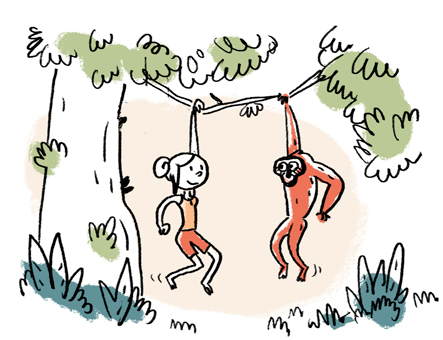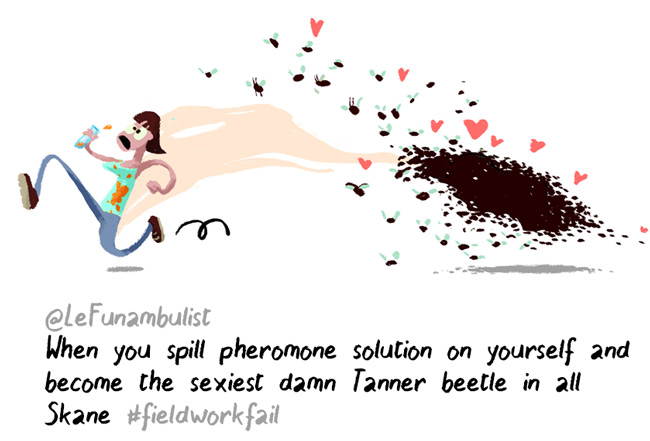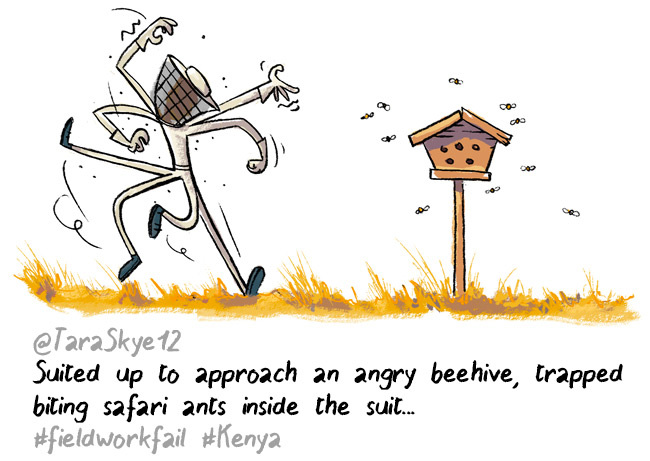

3 questions to Tara:
Can you explain what was your job about ? What was you doing in Kenya with bees ?
I was working on a human-elephant conflict project in Kenya called the “Elephants and Bees Project”. To give you a little background, elephants will often eat and trample entire farms of crops in Africa, which drives human-elephant conflict, making people afraid of them and not wanting to protect them.
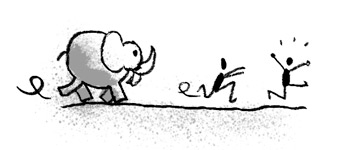
But Dr. Lucy King discovered that elephants are afraid of bees, and that whenever they hear bees, they will warn their herd of the danger and leave the area. So, she began constructing “beehive fences” that surround subsistence farms near areas where elephants frequently travel. A beehive fence is a series of beehives hung up and attached to each other with a wire, so that when an elephant walks into the wire, it swings the hives, agitates the bees, and scares away the elephants.
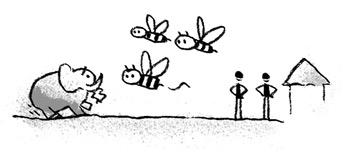
I was there to help maintain these fences, build new ones, collect data on the elephants’ behavior and movement in response to the fences, and monitor the occupation levels of the beehives.
What happened after ?
We did access the hive, which had been damaged by a storm the previous night and was hanging sideways, so we repaired it and hung it back up before another storm rolled in that night, which we got caught in. A couple of us were getting bitten by the safari ants the whole time we were doing repairs. It was kind of a disastrous night – they weren’t all like that…
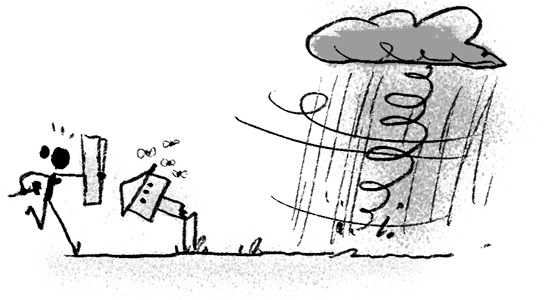
An animal you love ?
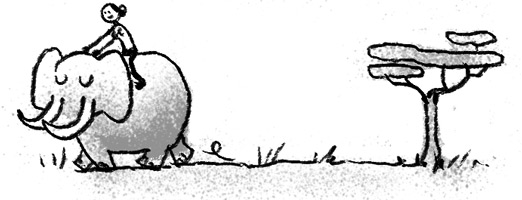
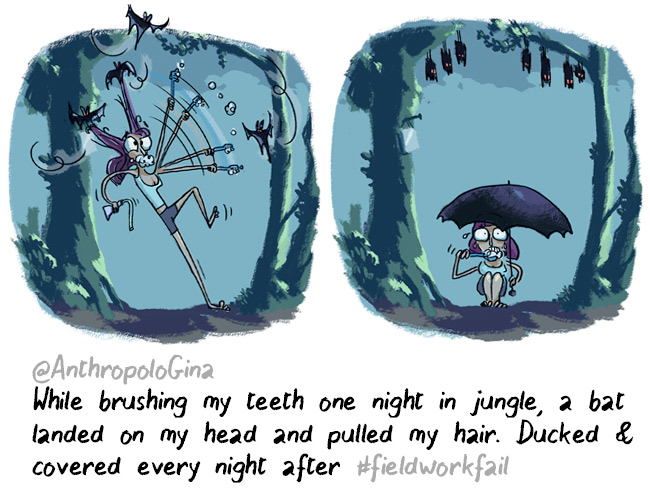

3 questions to Gina :
What were you studying at that time ?
I was in Suriname – a small country in South America – studying golden-handed tamarins, a species of New World monkey. I went there to study them for my master’s thesis, in anthropology, specializing in primatology.
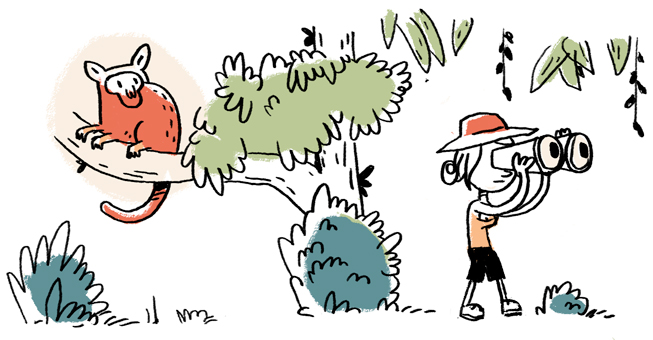
It was about analysing their ranging patterns, I would track where they would travel. I would find a group and follow them.
I also did tree measuring to study forest thickness. Sometimes I’d track a group for several hours. The temperatures would be well over 100 degrees F and the dew points were in the upper 70s, so it would be pretty physically draining to stay in the forest all day. Drinking plenty of water was a must.
What was the most difficult thing you encountered ?
I’d say the worst part about being in the forest, besides the heat, was the mosquitoes. I had literally hundreds of bites all over me. I looked like I had the chicken pox! They bit through my clothes, and mosquito repellant was useless, even the kind with DEET. I even got a botfly parasite transmitted through a mosquito, that was another one of the posts I had.
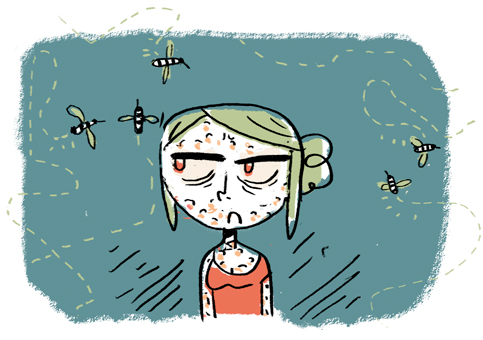
I didn’t mind the bats actually, we lived in a cabin with no electricity and no running water and we had bats and tarantulas in there. I was just outside for a minute to brush my teeth and he got caught on my hair and wouldn’t let go!
Thanks Gina!!
Illustrations of #FieldWorkFail : here we go!!
update : Here may be a good place to post the thumbnails of each FieldWorkFail I illustrated :
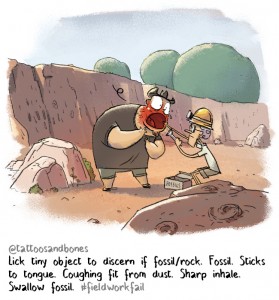

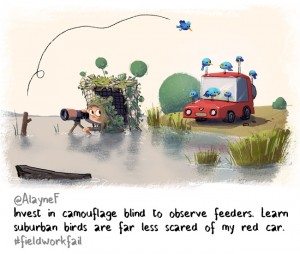
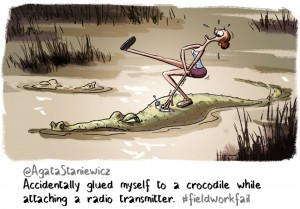
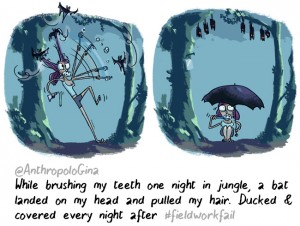

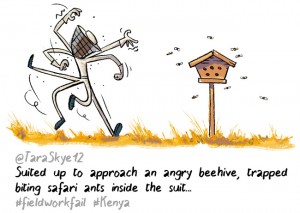
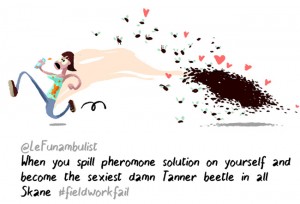
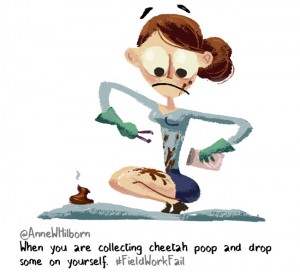
More Field Work Fails illustrated ?
Tell me what #FieldWorkFail you’d like to see illustrated ! You can go to the selection of #FieldWorkFail or search in the twitter hashtag #FieldWorkFail… then suggest me your favorite here in the comments 🙂










